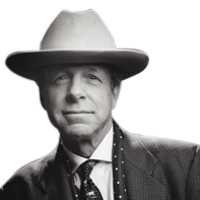He has said I have the integrity of a ShamWow salesman; I’ve called him a hate monger. So, it may surprise you to hear that talk-radio host and provocateur extraordinaire Mark Levin and I are in agreement.

The defense budget could be cut.
Heretics, we are.
In my last column urging new thinking about our spending and debt addictions, I recommended we let the delayed defense sequester cuts take effect in March. While it is illogical that half of the $1.2 trillion in automatic cuts spread over 10 years hit defense—which represents less than 20 percent of the federal budget—as conservatives we cannot always say “spend more” on defense. If we can easily see ways to cut costs in the Department of Education, we should not be blind to opportunities at the Pentagon.
And as only Levin can write: The president is not wrong “to raise the question of Pentagon ‘bloat.’ The United States has the most lavishly funded military on the planet, and what does it buy you? In the Hindu Kush, we’re taking 12 years to lose to goatherds with fertilizer ... [W]hy shouldn’t the Pentagon get a top-to-toe overhaul—or at least a cost-benefit analysis?”
The $45 billion in defense cuts likely to come this year will hurt. Though military personnel and war funds are protected, the civilian workforce of 791,000 alone cannot absorb the losses. The budget for civilian pay and benefits is “only” about $70 billion a year. That means contractors, operations, maintenance costs, and weapons programs also are in the cross-hairs.
Admittedly, this is not a great time to be affecting jobs, but the government is not the most efficient employer. With the Pentagon spending an average of $2 billion to $3 billion every business day, the potential for savings through streamlining, standardizing, prioritizing, and tracking and cutting waste and inefficiency could surely total the needed 10 percent.
Bottom line: Savings must be found.
But the Defense Department cannot track all of its spending.
Let me repeat that.
The Defense Department, which spends somewhere less than half of the world’s military total, cannot track all of its spending.
Unlike every other federal agency, the Pentagon has never completed a “clean audit,” or full examination of its spending. The U.S. Marine Corps completed an audit in 2010, however, finding “for each $1 spent on financial improvement, an estimated $2.77 in value was created for the warfighter.”

A bipartisan bill to “Audit the Pentagon,” introduced last summer by Sens. Tom Coburn (R-OK) and Joe Manchin (D-WV), mandated that if the Department of Defense failed to obtain a clean audit opinion in 2017, the agency that cuts the checks for the Pentagon would move to the Treasury Department. The bill’s minimal requirement to be “audit-ready” by 2014 was passed as an amendment to the National Defense Authorization Act at year end, but without any consequences for failure to achieve an unqualified audit opinion.
In offering the original legislation, Coburn noted: “Auditing the Pentagon is critically important not just because it is the law, but also because our ignorance of how we spend defense dollars undermines our national security.”
Exactly. That is the right conservative argument. Not knowing how we spend money may be hurting our national security. We’re flying blind. Are we spending it in the right places? For the right future forces?
Even Sen. John Cornyn (R-TX), a co-sponsor of the audit legislation and one of the strongest defenders of the military, admitted at a public-policy panel in Austin last week that the proposed cuts to defense most likely could be made.
So, the argument should shift from “Should we cut the defense budget?” to “Where do we make the smartest cuts?” The aim is not to disarm our troops or weaken our national security, but to strengthen both.
As Levin notes: “[T]here are some very basic questions that need to be asked about the too-big-to-fail Department of Defense. Obama would like the U.S. military to do less. Some of us would like it to do more with less —more nimbly, more artfully. But, if the national-security establishment won’t acknowledge there’s even a problem, they’re unlikely to like the solutions imposed by others.”
Less damage will result from targeted strikes to defense spending rather than blind, bunker-busting cuts.






